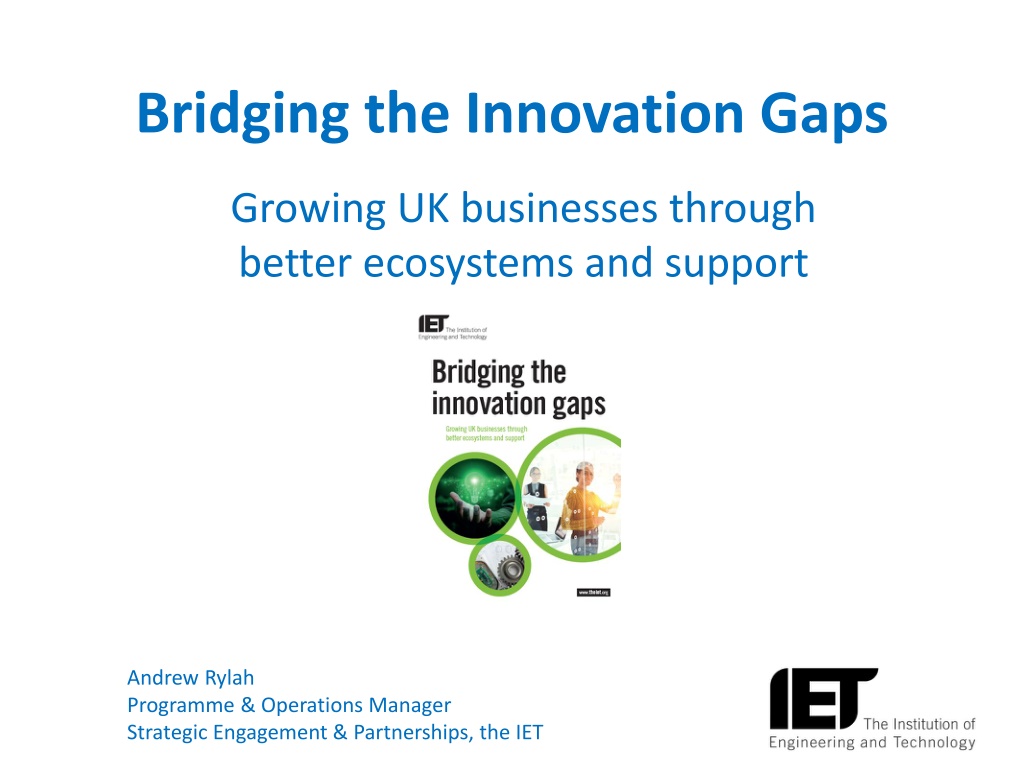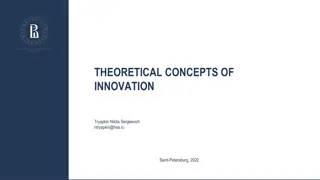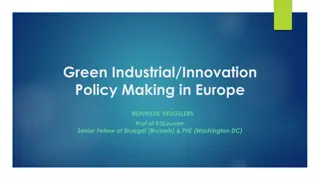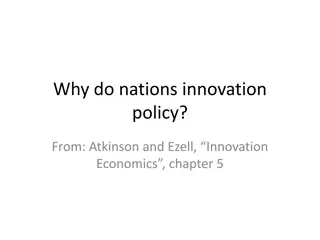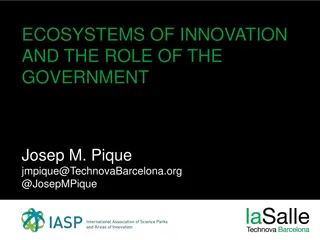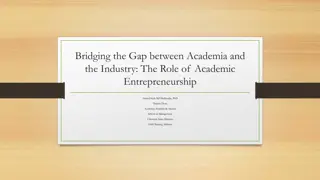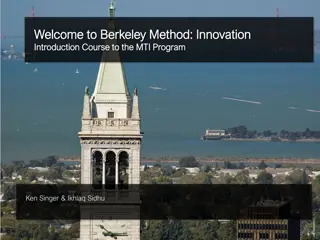Bridging Innovation Gaps for UK Business Growth
Innovation plays a crucial role in converting inventions into sustainable value, driving long-term growth, prosperity, and societal transformation. Focusing on supporting SMEs, especially scale-ups, is essential for economic impact and job creation. Challenges include overcoming the "Inventors Syndrome," addressing the "Scale-Up Gap," and establishing effective financial links for growth and sustainability.
Download Presentation

Please find below an Image/Link to download the presentation.
The content on the website is provided AS IS for your information and personal use only. It may not be sold, licensed, or shared on other websites without obtaining consent from the author. Download presentation by click this link. If you encounter any issues during the download, it is possible that the publisher has removed the file from their server.
E N D
Presentation Transcript
Bridging the Innovation Gaps Growing UK businesses through better ecosystems and support Andrew Rylah Programme & Operations Manager Strategic Engagement & Partnerships, the IET
Innovation is Key Converts invention into sustainable value commercialised ideas: product / service / process to respond to challenges / market create competitive advantage, long-term growth & prosperity (local & national) bring high value jobs, transforms societies Increasing impact & spread disruptive / converging technologies, Industry 4.0, knowledge economies, short product lifecycles
Company / Technology Scale-Ups Av. annual growth (employees / turnover) > 20% pa for 3 years Only 35K scale-ups (esp E&T) but high productivity High impact on economy if grow into corporates
Innovation Challenges Growing range of govt & private initiatives Good track record at start-up; less for scale-ups IET 2018 survey: 333 E&T SME respondents & 4 round tables: What will drive up the number & range of successful SMEs? What are the barriers to SME growth?
1. Inventors Syndrome Belief: perfected technology = market success Clarity over business pathway Yes - Engineering prowess; business & marketing acumen also essential Realistic commercial value Time in development v market understanding Fit for purpose v Over-engineering
2. Scale-Up Gap Clusters of operational excellence No comprehensive, systemic landscape of support to meets needs Lack of awareness of support Access Talent Networks Markets Relocate / risk of takeover at a discount to potential
3. Financial Disconnect Effective links between finance & early stage technology development Less so at Scale Up level to reach those with best growth prospects Culture: ROI timescales; from working concept to sustainable sales
Ecosystems for E&T SME growth Availability & development of talent: UK & abroad Skills / attract applicants / bureaucracy / min salary Business training & knowledge beyond STEM Peer-to-peer business mentoring Relevant, recent expertise, consistency, trust, cost Showcasing best practice innovation Value, learning, comms Extend local networks & wider links technologies, supply chains, development stage
Support that delivers Financial liquidity: angels, VC, debt, loans, grants, crowdfunding investment-ready opportunities - Stage of development / potential / competition / exit UK-wide patient capital; replace European funds Joined-up extension of incubators / accelerators for scale-up needs Local & national data set analysis (best targets) Raise profile of network support
The Route Forward Innovation journey for outcomes: aligned R&D, start-up, scale-up, stay ahead Clusters of excellence early stage research / start-up support Agree with RA Eng: significant areas for improvement esp later stages of R&D & SME growth much higher capacity for innovation Long-term govt priority for business-led innovation Local & national, strategic action plan Leverage co-ordinated cross-dept pipelines Commercialisation through collaboration: academia, SMEs, corporates, not-for-profits Convene access to (inter)national markets, procurement & smart finance Build on successful models Streamlined, capacity building initiatives. Timeframes / guidelines Agile support: as, when, where & how needed Relationship management Facilitate exchange of knowledge, people, ideas
